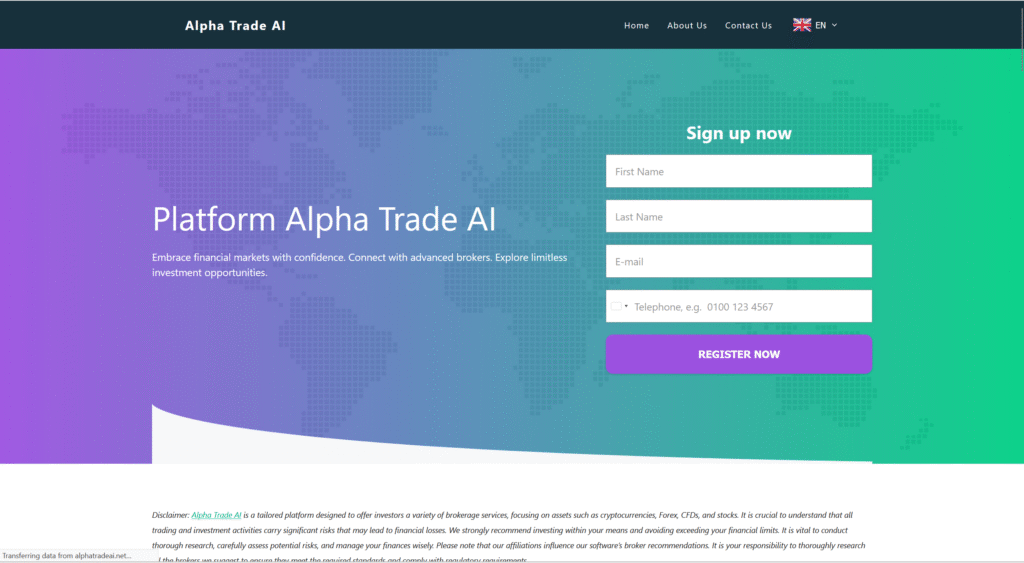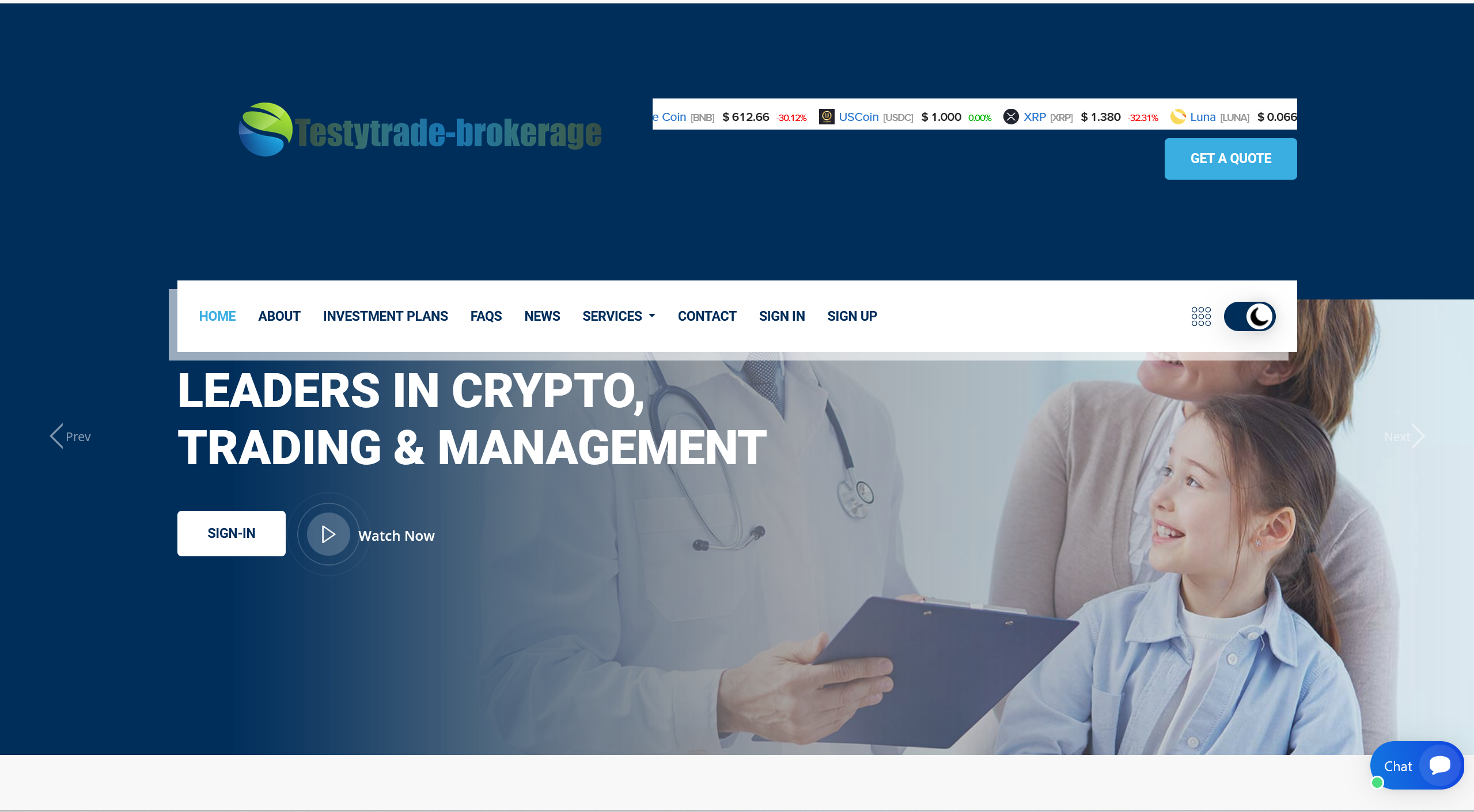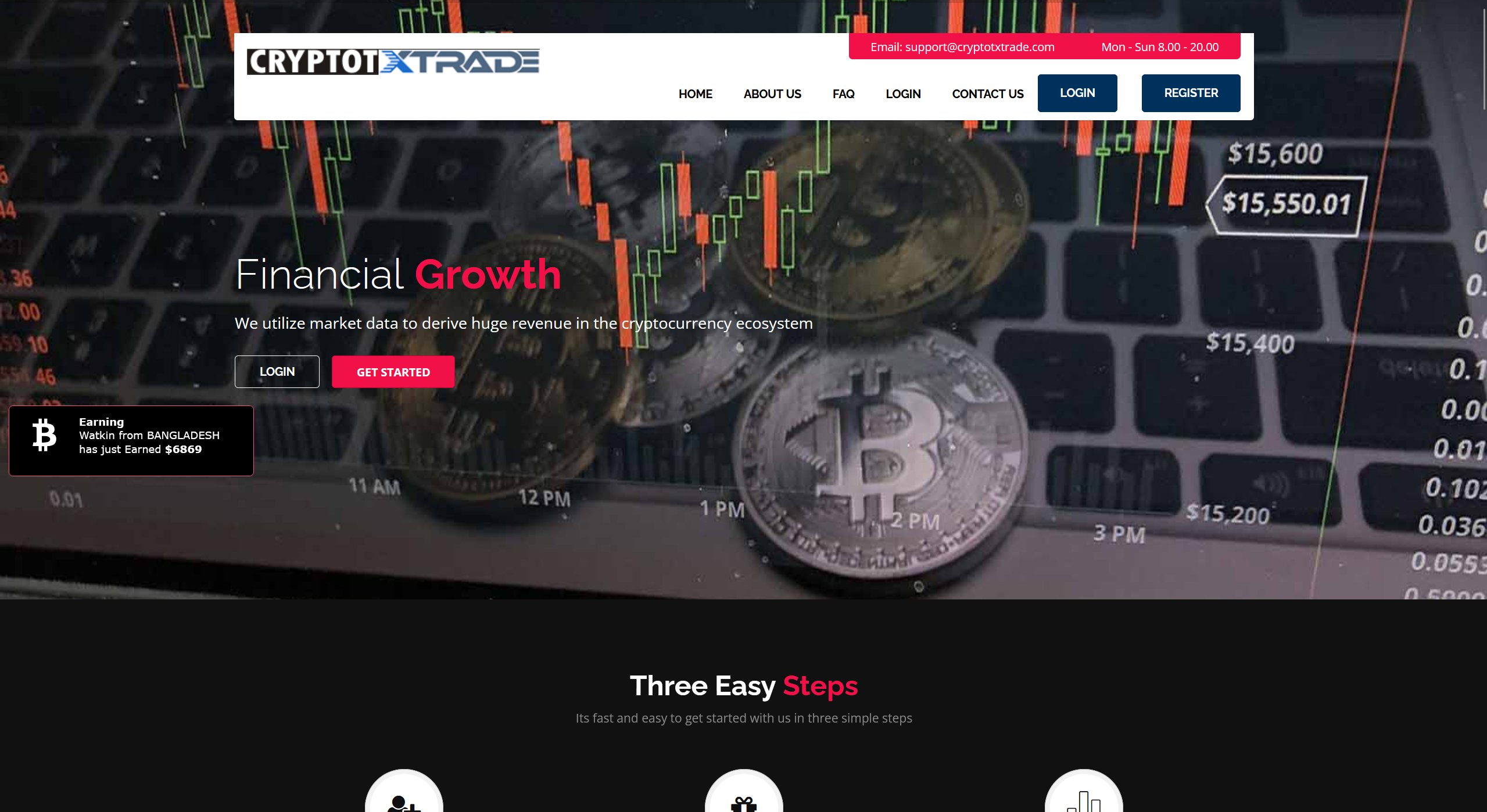1. FCA Warning: Operating Without Permission
One of the clearest red flags is the UK’s Financial Conduct Authority (FCA) officially listing alphatradeai.net on its Warning List. According to the FCA, this firm “may be providing or promoting financial services or products without our permission.” They urge consumers to avoid dealing with it.
Because it is not authorized, clients dealing with AlphaTradeAI lose key protections: there is no access to the Financial Ombudsman Service, and no protection under the Financial Services Compensation Scheme (FSCS) if things go wrong.
That means if funds are lost, there is little regulatory recourse in the UK context.

2. Listed in IOSCO / I-SCAN Alerts
AlphaTradeAI is also flagged in the IOSCO / I-SCAN alerts network as an entity offering financial services without registration or licensing.
This cross-regulator listing adds weight: it’s not just the UK regulator raising a warning—it’s part of a global watch list of suspicious operators.
3. Misleading Contact Information & Hidden Details
The FCA warns that firms on its warning list sometimes provide incorrect or fake contact details (addresses, phones, emails), or change them over time to evade detection.
AlphaTradeAI, through its domain, likely hides real registration or corporate identity. Without transparent ownership and accountability, it’s difficult or impossible to trace who is running it or hold them responsible.
4. Promises vs. Reality: The Danger of “AI Trading” Claims
Websites using “AI” or “automated algorithms” often advertise smooth, effortless profits. The appeal is simple: many are lured by promises that a machine will trade for you, eliminating risk. But real markets are volatile, and no algorithm can guarantee gains indefinitely.
In many reported frauds, the “AI trading” claim is a marketing veneer to mask underlying operations that depend on inflows rather than real trading gains. Especially for a site without regulatory backing, these claims should be taken with great skepticism.
5. Withdrawal Barriers & Exit Friction
A common pattern: after initial deposits, users see “profits” in their dashboard. But when attempting withdrawals, the platform demands extra fees, taxes, compliance documents, or refuses. Because AlphaTradeAI lacks oversight, these barriers are hard to challenge.
The FCA warning makes clear that when dealing with unauthorized firms, you won’t be protected if they fail to honor withdrawals.
6. Scam Feedback from Users
Though not exactly the same domain, reviews of “Alpha AI” platforms echo the same structure: users report being asked for additional payments at withdrawal, being blocked, or having their funds locked. For example, on Trustpilot, users complain that they were promised large returns, but when they tried to collect, an excuse was given, and they were pressured to deposit more.
Also, in legal advice forums (like JustAnswer), some users flag it as “often scams” and warn that recovering initial investment is unlikely.
While the domain differs, the patterns and complaints are consistent with risky, fraudulent operators.
7. Your Risk Is High — No Safety Net
Because AlphaTradeAI is unlicensed, offers opaque ownership, and uses marketing promises that mirror known scam tactics, users risk:
- Loss of entire deposit or more
- Difficulty in pursuing legal action
- Loss of time and emotional stress
- Being targeted by subsequent “recovery” scams
When a firm refuses to comply with basic regulatory standards, it forfeits accountability. You bear the entire risk.
Conclusion
AlphaTradeAI (alphatradeai.net) is one of the many modern platforms trying to cloak itself in sophistication—using terms like “AI trading,” “automated returns,” and sleek interfaces—to mask the absence of foundational legitimacy. The FCA’s public warning that it is not authorized is a powerful sign that the platform is operating outside the boundaries of lawful financial services.
It’s not enough to have a polished website or persuasive marketing. Real accountability requires transparent ownership, valid licenses, regulatory oversight, audited disclosures, and verifiable continuity. None of these are present with AlphaTradeAI—at least not in any publicly confirmable way.
When platforms promise effortless profits or AI that works non-stop, always check: Where is their license? Which jurisdiction regulates them? Where is their physical business? If you can’t answer those questions with confidence and proof, consider it a warning sign, not an opportunity.
One of the strongest tests is withdrawal. If a platform places delays, unexpected fees, or refuses withdrawals, it’s often because the operator is designed to capture funds, not return them. And because AlphaTradeAI is not regulated, there is no oversight to force compliance or restitution.
If you already have exposure or are considering investing, proceed with extreme caution. Start with a minimal test deposit (only what you can afford to lose) if you must. Try withdrawing that small amount immediately to evaluate whether the system honors it. Document every interaction, emails, support chat transcripts, screenshots, transaction records.
Also, check your local financial regulator. If you see signs of fraud or non-compliance, report the firm. In the UK, you can also report to the FCA. The more exposure such services receive, the more likely regulators and platforms to act.
In the digital age, scams are evolving: AI, cloned sites, deepfakes, slick user interfaces—they all play into deception. But your best defense is vigilance, verification, and refusing to be rushed by promises of quick gains.
Your caution is your guard. Unless a trading platform proves regulation, transparency, and consistent, independent track record, avoid risking funds. With platforms like AlphaTradeAI, where those foundations are missing, the safer path is to stay away.





